
Discover Sliding High Performance Plastic Linear Bearings & Assemblies
What Are Sliding High-Performance Plastic Linear Bearings & Assemblies?
Sliding high-performance plastic linear bearings (also known as linear plain bearings or plastic linear bushings) are linear motion components that use engineered polymer sliding surfaces instead of traditional metal rolling elements. Unlike ball-bearing style linear guides that contain recirculating steel balls, these plastic bearings consist of a low-friction polymer element that glides along a shaft or rail. They are often made from advanced self-lubricating polymer composites, with materials such as PTFE- or iglidur®-based blends that include solid lubricant particles embedded throughout. This design enables 100% dry-running operation – the bearing lubricates itself as it slides, eliminating the need for messy external oils or greases. The plastic slide element is usually housed in a cylindrical sleeve or a mounting block, forming a compact assembly that can easily replace standard linear ball bearings in many applications.
High-performance plastic linear bearings come in various forms, including stand-alone bushings that press into housings and complete bearing-and-housing units (assemblies). For example, INA (Schaeffler) offers the PAB..-PP-AS series of plain linear bearing inserts and the matching PAGBA..-PP-AS series of linear plain bearing units that integrate the bushing into an aluminum housing. These units are often equipped with lip seals on both ends (suffix PP denotes seals on both sides) to keep out dirt, and some designs even include optional relubrication ports for extreme operating conditions (though routine relubrication is generally unnecessary due to their self-lubricating nature). Leading polymer-motion companies like IGUS provide similar products under their DryLin® range – for instance, DryLin R series slide bearings are all-plastic bushings that can drop into the same dimensions as standard recirculating ball bushings, and DryLin RJUM series bearings combine a plastic liner with a hard anodized aluminum sleeve for easy retrofit into traditional bearing blocks.
Design principles: Plastic linear bearings operate on sliding friction. The bearing’s polymer liner typically has a low coefficient of friction against a mating shaft (often steel or aluminum), enabling smooth motion with minimal stick-slip. Because the contact is a wide, uniform surface (as opposed to point contacts of balls), the load is distributed over a larger area. This allows plastic bearings to support significant loads without surface damage. In fact, thermoplastic plain bearings with fiber reinforcement can sustain surface pressures up to ~150 N/mm², with the material’s fiber matrix preventing deformation under load. The absence of rolling elements also means these bearings have no recirculating parts to create vibration or noise during motion. They glide quietly along the shaft, an important benefit for precision equipment and noise-sensitive environments.
Key features of sliding plastic linear bearings include:
- Self-lubrication: They are constructed from materials that continually provide their own lubrication. Solid lubricants (like PTFE or graphite) are embedded in the plastic and automatically release during motion. This means maintenance-free operation – no periodic oiling or greasing is required over the bearing’s life.
- Low friction & smooth motion: High-performance polymer liners exhibit low coefficients of friction, resulting in easy sliding movement and reduced drag torque. The motion is often described as “gliding” – smooth and without the click-click of balls circulating. This also contributes to low operating noise, as there are no hard metal-to-metal contacts.
- Corrosion resistance: Being made of plastic, these bearings are inherently corrosion-proof – they will not rust or oxidize even in wet or chemical environments. The polymer materials are generally resistant to water, detergents, many chemicals, and salt solutions. This makes them suitable for use in harsh environments that would quickly corrode or degrade traditional metal bearings.
- Lightweight: Polymers are much lighter than steel. Plastic linear bearings add little weight to a system, which is beneficial in weight-sensitive designs (e.g. robotics, portable equipment). Their low mass also means less inertia, which can improve the efficiency of high-speed linear motions.
- Dust- and dirt-friendly: Because they don’t require oily lubricants, dirt and dust are less likely to stick to the bearing. These bearings tend to tolerate dirty conditions well – debris that would incapacitate a ball bearing (by contaminating grease or jamming the balls) is often simply pushed aside or absorbed by the plastic liner as the bearing slides. The result is reliable operation in environments with particulate matter (dust, sawdust, powders, etc.).
- Cost-effectiveness: Plastic linear bearings are usually more economical than precision linear ball bearings. They are typically manufactured by injection molding, which is a highly efficient, high-volume process. Producing bearing elements from thermoplastic requires significantly less energy and machining than producing metal bearings (which involve extensive cutting, grinding, and heat-treating). In addition, eliminating external lubrication simplifies system design and maintenance. Studies have shown that switching to self-lubricating plain bearings can reduce overall costs by around 40% when factoring in purchase price, lubrication supplies, and maintenance downtime.
In summary, sliding plastic linear bearings are a modern linear motion solution that offers maintenance-free, clean, and robust performance. They leverage advanced polymer engineering to deliver low-friction, low-noise linear motion with excellent resistance to corrosion and contamination. Next, we’ll compare these plastic bearings head-to-head with traditional metal and rolling-element linear bearings to highlight their specific advantages.
Advantages of Plastic Linear Bearings vs. Traditional Metal Systems
High-performance plastic linear bearings and assemblies provide many benefits over conventional metal linear bushings or recirculating ball-bearing guides. Below is a breakdown of key advantages, especially in terms of durability, maintenance, and suitability for challenging conditions:
- Maintenance-Free Operation: Plastic linear bearings are self-lubricating and do not require periodic greasing. All lubrication is internal to the polymer, which means no re-oiling, no grease fittings, and zero maintenance labor over their service life. By eliminating external lubrication, machines can minimize downtime and avoid lubricant-related failures (no dried grease or clogged ball tracks). This results in higher reliability and lower maintenance costs for the end user.
- Durability and Load Capacity: Don’t let the word “plastic” mislead you – these bearings are mechanically robust. The latest polymer composites can support high static and dynamic loads by distributing forces evenly across a wide contact area. For example, fiber-reinforced thermoplastic liners can withstand surface pressures up to 150 N/mm² without yielding. The material’s elasticity gives it excellent shock and impact resistance: it can absorb vibrations and handle sudden loads that might brinell or dent metal bearings. Unlike thin-metal lined bushings that can deform or delaminate under heavy loads or oscillating motion, polymer bearings have no thin fragile coating – the solid plastic structure maintains its integrity under stress. This translates to long service life even in demanding, repetitive motion applications. Many designs also incorporate wear-resistant additives that ensure the coefficient of friction remains low and steady over time, so performance doesn’t degrade quickly.
- Use on Soft Shafts (Aluminum or Mild Steel): Traditional linear ball bearings demand a very hard, precision-ground shaft (often hardened steel) to prevent groove formation from the rolling elements. In contrast, plastic plain bearings are much more forgiving and can run on softer shaft materials like aluminum or standard stainless steel. The plastic does not embed into the shaft; instead, it can even act as a mild polisher. This makes them ideal for systems where weight or corrosion considerations dictate using aluminum or non-hardened shafts. For instance, in food processing or laboratory equipment, often 300-series stainless steel shafts (which are corrosion-resistant but not through-hardened) are preferred – polymer bearings excel in such cases because they don’t require hardened tracks. They slide smoothly on soft metals without causing damage, something that rolling bearings generally cannot do.
- Low Noise and Vibration: Machines fitted with plastic linear bearings run noticeably quieter. Ball-bearing guides can produce a “metal-on-metal” rolling noise or clicking (especially as the ball circuits pass junctions), and any lack of lubrication makes it worse. Plastic bearings eliminate these issues – they glide in near silence with no recirculating components. In fact, tests show that plain polymer bearings typically operate in the 45–60 dB(A) range, whereas recirculating ball linear bearings are around 60–70 dB(A) under similar conditions. Moreover, as speed increases, ball bearing systems often get louder (due to ball centrifugal forces and collisions), while plastic bearings remain essentially constant in noise output. The plastic material also inherently dampens vibrations, acting as a noise absorber. The smooth, silent motion of these bearings is a major advantage in applications like medical devices, lab automation, and office or home machinery where excess noise is unacceptable.
- Cleanliness for Sensitive Environments: Because no oil or grease is applied, plastic linear bearings are inherently cleaner for environments like cleanrooms, medical equipment, food production, or semiconductor manufacturing. There is no risk of lubricant fling-off or outgassing. In medical and lab settings, this is crucial – for example, a sliding bearing on hospital or lab apparatus must not contaminate samples or patients with grease. Plastic bearings meet this need by operating dry and even being offered in special FDA-compliant materials for direct contact with food or pharmaceuticals. Additionally, without sticky lubricants, they do not attract dust or debris. Any particles that do land on the shaft are often swept aside by the motion of the bearing itself. The result is a solution that stays clean and functional even in dusty, gritty environments (where greased metal bearings might turn into lapping compound and wear out quickly).
- Corrosion Resistance & Wet Environment Suitability: Plastic linear bearings thrive in conditions that would destroy traditional bearings. All-polymer designs are completely immune to corrosion – water, steam, cleaners, and even many chemicals have little effect on modern engineering plastics. This makes them ideal for wet or washdown environments. For instance, in food processing or packaging machines that are routinely hosed down with caustic sanitizing solutions, plastic bearings continue running with zero maintenance. There’s no worry about seals getting washed out or re-lubrication after cleaning – the bearings remain lubricated internally and won’t rust. Similarly, in outdoor or marine environments (think marine automation equipment or offshore machinery), corrosion-proof plastic liners on stainless shafts offer a long-lasting linear motion solution where standard steel bearings would seize. Plastic bearings also handle temperature extremes and chemicals well, with certain materials rated for a wide temperature range and resistant to acids/alkalis as needed in industrial processing.
- Energy-Efficient Manufacturing & Operation: The benefits of plastic linear bearings extend beyond their performance in service – they also contribute to efficiency in manufacturing and operation. Producing these components via injection molding is significantly more energy-efficient than manufacturing metal bearings, which require energy-intensive forging, machining, grinding, and heat treating. The ability to mold complex shapes easily also allows integration of features (like clips or mounting flanges) without additional assembly, simplifying the overall product. From an operational standpoint, the low friction and self-lubrication of plastic bearings can slightly reduce the drive power needed for linear motion (especially after break-in, as they tend to have a consistent, low drag). More importantly, the maintenance-free nature means machines spend more time running and less time down for service, improving overall energy and production efficiency. Finally, eliminating external lubricants is environmentally friendly – it reduces oil use and prevents contamination of products or waste streams with grease. All these factors make plastic linear bearings a cost-effective and sustainable choice for modern engineering. In fact, when considering purchase, lubrication, and maintenance costs together, companies have seen substantial savings (often double-digit percentage cost reductions) by switching from traditional linear bearings to self-lubricating polymer types.
Preload and precision: It’s worth noting that, as with metal linear guides, plastic linear bearing systems can be configured to minimize clearance. Some designs allow adjustment of the bushing or use special low-clearance liners to achieve a preloaded, clearance-free fit for high precision applications. For example, IGUS DryLin RJUM bearings are available in a “low clearance” version, and certain INA housing units permit slight clamping of the bearing shell to dial out play. PIB’s engineering team can assist in selecting the appropriate tolerance or preload class to ensure your linear bearing system meets the necessary accuracy without sacrificing the smooth sliding performance.
Modern plastic linear bearings often outperform their metal counterparts in durability, simplicity, and environmental resistance for a wide range of applications. That’s why they have become increasingly popular in industries looking for clean, reliable, and cost-effective linear motion solutions.
Typical Applications and Industries
Sliding plastic linear bearings and assemblies are used across numerous industries – wherever engineers need reliable linear motion with minimal upkeep. Here are some typical use cases and sectors where their advantages are most valuable:
- Automation & Robotics: Industrial automation systems, pick-and-place robots, and even DIY robotics frequently employ plastic linear bearings to achieve maintenance-free performance. For companies trying to “automate on a dime,” polymer bearings offer huge cost savings and require no lubrication, which is ideal for gantry robots, linear actuators, and workstation automations that must run continuously. The low weight of plastic components is also beneficial in robotic arms and moving gantry axes, allowing faster acceleration with less motor power. In factory automation, these bearings can handle dusty, dirty conditions and won’t gum up, ensuring high reliability in production lines.
- Medical Devices & Laboratory Equipment: The medical industry values plastic linear bearings for their clean, quiet operation. Hospital beds, patient lifts, lab analyzers, and imaging machines are examples where grease-free sliding bearings prevent any risk of oil contamination in sterile environments. They also contribute to quieter equipment – a significant benefit in labs or hospitals where a calm environment is desired. Because they are corrosion-proof, they can withstand regular cleaning and disinfection. From pharmaceutical processing machinery to biomedical devices (like syringe pumps or scanning equipment), the non-magnetic and self-lubricating properties of plastic bearings are often a perfect fit.
- Food Processing & Packaging: Production lines for food and beverage packaging are a natural fit for plastic linear bearing assemblies. Equipment such as filling machines, slicers, conveyor sliders, and carton packers are regularly exposed to washdown cleaning and must avoid lubricant contamination at all costs. Plastic bearings excel here: they operate without external grease (so nothing to contaminate food packages) and endure caustic washdown chemicals without corroding. Additionally, in packaging machines handling sugary or powdery products, polymer bearings have proven superior – for instance, in candy factories, sugar dust would quickly destroy ball bearings, whereas plain plastic bearings simply wipe away the granules as they slide. FDA-compliant plastic bearing materials are available for direct food contact, making them safe and compliant for kitchen and processing environments.
- Harsh and Wet Environments: Many heavy-duty applications benefit from the resilience of sliding plastic bearings. In outdoor machinery or agricultural equipment, they withstand mud, dirt, and rain without seizing up – an occasional rinse of the equipment is all that’s needed. In marine and offshore applications, plastic linear bushings paired with stainless shafts offer a combination that is completely impervious to seawater and salt air. They are used in boat hatches, marine lifts, and offshore drilling rigs where metal bearings would rust rapidly. Similarly, in chemical processing plants or plating lines, the absence of metal eliminates problems with acid or alkali attack. Essentially, any application that sees extreme humidity, water exposure, or chemical contact is a great candidate for high-performance polymer linear bearings – they’ll continue sliding smoothly where traditional bearings would require constant attention or fail outright.
These examples only scratch the surface – plastic linear bearing technology is incredibly versatile. From cleanrooms to foundries, from 3D printers to construction equipment, the demand for lubrication-free, robust linear motion has made polymer bearings a go-to solution in countless designs.
Comparison of Plastic Linear Bearing Options and Specifications
To illustrate the range of products in this category, the table below compares a few representative plastic linear bearing options.
| Part Number | Description | Inner Ø (Shaft) | Material Composition | Key Features |
| INA PAB12-PP-AS | Plain linear bearing (closed design, sealed) – Permaglide® series PAB, size 12mm . | 12 mm (0.47″) | Metal shell with Permaglide self-lubricating polymer liner (PTFE-based) | Sealed on both ends (PP) to keep out contaminants; maintenance-free dry operation; press-fit into housings. Supports high loads with low friction. Typically used with INA housings or custom blocks. |
| INA PAGBA12-PP-AS | Linear plain bearing assembly (open type with housing), size 12mm. Consists of a PAB plain bearing in an aluminum housing. | 12 mm (0.47″) | Aluminum housing with Permaglide polymer liner (same liner as PAB series) | Open-style (split) aluminum block allows shaft support along its length. Sealed and relubrication-ready (has lube ports), though normally runs dry. Easy bolt-on installation for linear motion systems. Suited for supported shafts or rail segments. |
This comparison highlights that whether you need a compact plastic bushing for a lightweight application or a robust housed unit for industrial machinery, there are plastic linear bearing solutions available to meet the requirements. PIB can help you navigate these options – from catalog parts to custom assemblies – ensuring the best fit for your design.
Ready to Transform Your Linear Motion
Pacific International Bearing Sales (PIB) invites engineers and procurement specialists to explore the advantages of sliding plastic linear bearings in their own projects. With over 40 years of proven industry experience, PIB encourages you to browse our online catalog and reach out to [email protected] for a free consultation. Whether you need to select the ideal part, request a sample, or get a quote for volume pricing, our team is here to help every step of the way. Contact us at [email protected] or visit our website www.pibsales.com
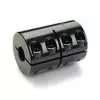
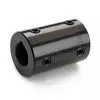
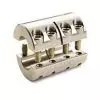
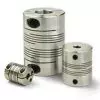
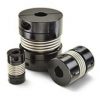
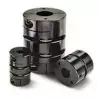
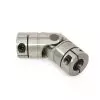
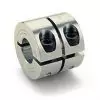 Short Rigid Couplings
Short Rigid Couplings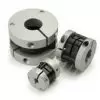 Controlflex Couplings
Controlflex Couplings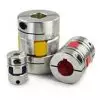 Jaw Couplings
Jaw Couplings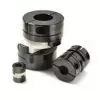 Oldham Couplings
Oldham Couplings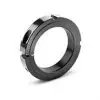 Bearing Locknuts – TCN
Bearing Locknuts – TCN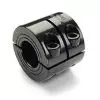 Double Wide Shaft Collars
Double Wide Shaft Collars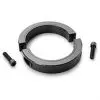 Heavy Duty Shaft Collars
Heavy Duty Shaft Collars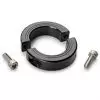 International Series Shaft Collars
International Series Shaft Collars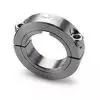 Keyed Shaft Collars
Keyed Shaft Collars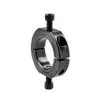 Mountable Shaft Collars
Mountable Shaft Collars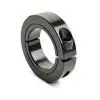 One-Piece Shaft Collars
One-Piece Shaft Collars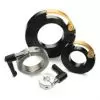 Quick Clamping Shaft Collars
Quick Clamping Shaft Collars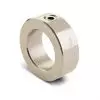 Set Screw Shaft Collars
Set Screw Shaft Collars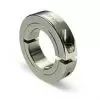 Thin Line Shaft Collars
Thin Line Shaft Collars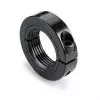 Threaded Shaft Collars – Pacific International Bearing Products
Threaded Shaft Collars – Pacific International Bearing Products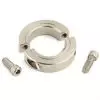 Two-Piece Shaft Collars
Two-Piece Shaft Collars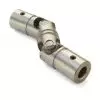 Friction Bearing Universal Joints
Friction Bearing Universal Joints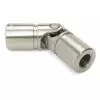 Needle Bearing Universal Joints
Needle Bearing Universal Joints


